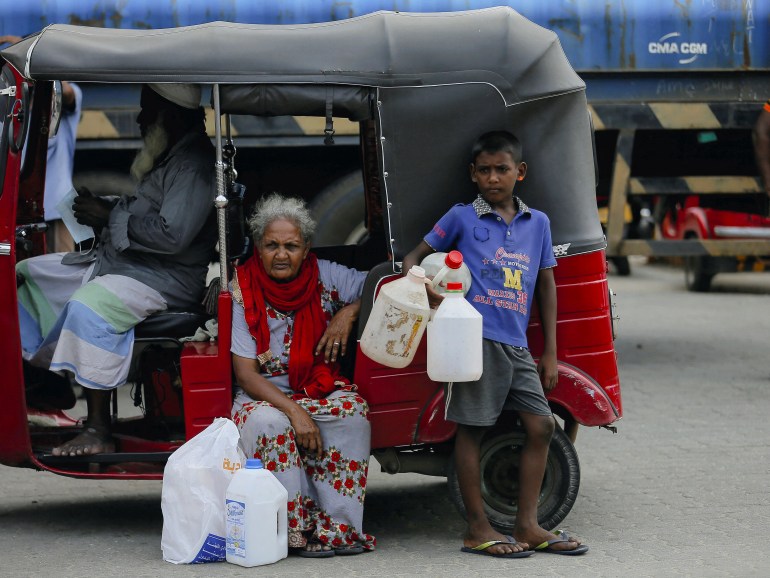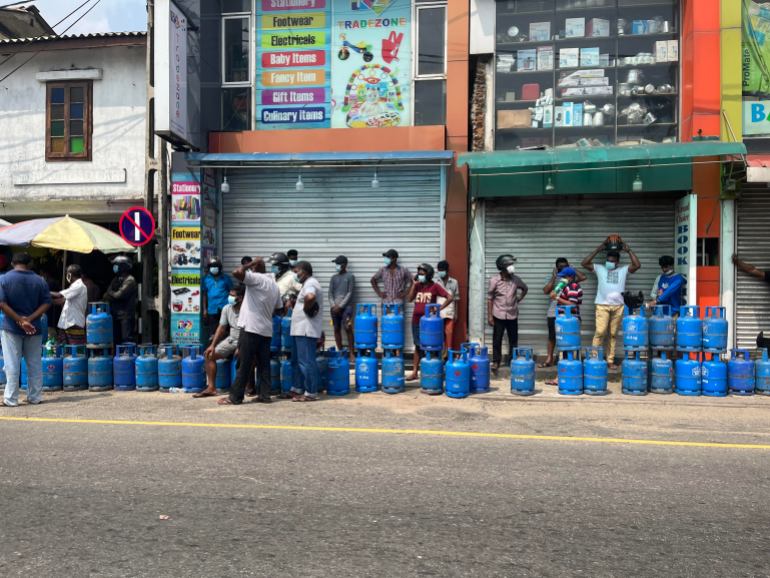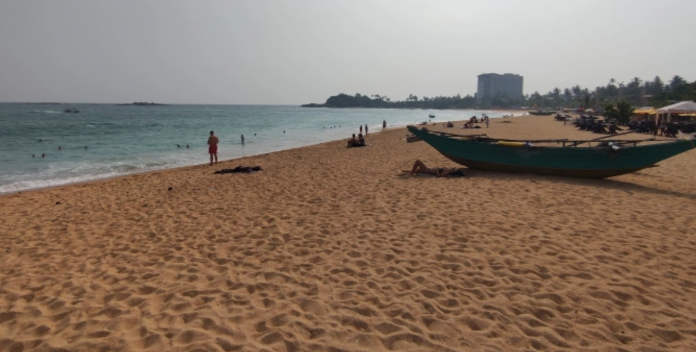Colombo, Sri Lanka – Tourism in Sri Lanka just can’t seem to catch a break.
Three years ago, the number of tourists was down 18 percent following the Easter Sunday bombings in April 2019. The coronavirus pandemic that followed in 2020 was particularly bad. Arrivals fell drastically and there were no signs of recovery until November 2021, when the government removed all quarantine requirements for fully vaccinated tourists, encouraging vacationers to come to the island state.
It was a welcome change as tourism is the third-largest source of foreign exchange for the country – behind worker remittances and the apparel industry – a large employer and an important source of dollars that help the government run the country.
But now as Sri Lanka grapples with the worst financial crisis the country has ever faced, there are daily power cuts and people are forced to stand in kilometres-long queues to buy fuel and cooking gas. Inflation was 17.5 percent in February and the government has further tightened its restrictions on imports, exacerbating shortages. All of this is once again keeping tourists away – at a time when the government is scrambling to find ways to repay an overwhelming amount of foreign loans and needs those tourist dollars.
“We need to find solutions for these people as soon as possible,” President Gotabaya Rajapaksa said in his national address on Sri Lanka’s independence day earlier in February. “As such, whilst strictly adhering to health recommendations, we have acted to restart the tourism industry in a phased manner.”
Worsening economic conditions
“Business has been fantastic the last few months,” said Kate Hopkinson, a foreign national who owns a restaurant and a bed and breakfast in Weligama, a popular coastal town in the south of the country. The prevailing economic conditions, however, are making it extremely tough for her to keep her business running.
“Due to the gas shortage, we have to buy on the black market, food prices are skyrocketing, [and] flour and imported goods are getting harder and harder to source. We run an Italian restaurant and we need cheese, but that is in short supply because of the import restrictions and local alternatives are getting pricier due to the milk shortage,” Hopkinson said.

Hopkinson is not the only one suffering. Restaurant owner Rasika Lakmal and lifestyle and travel ambassador Paloma Monnappa operate tourism businesses in the popular coastal towns of Galle and Unawatuna.
“We are facing four- to seven-hour-long power cuts daily. Fishermen are forced to cut back on fishing due to the fuel shortage, [and] shipping containers with essential items are stuck at the port because the country doesn’t have the money to pay for them”, said Monnappa.
“Every time you think of a possible solution you’re faced with a new issue or obstacle. You buy a generator but there’s no diesel to run it. We are desperate for tourists, but how do we cater to them? My Sri Lankan friends tell me the economy wasn’t this bad even during the war,” she said.
While some restaurants are buying gas from other cities like Colombo and Matara, Lakmal says that’s not an option for him. “If we do that then it costs about 10,000 Sri Lankan rupees ($35), more than double the normal price. We can’t afford that,” he said.

Spillover from the Russia-Ukraine war
Sri Lanka’s usual top tourism source markets are India, China, the United Kingdom and Germany, but since tourism’s reopening, many visitors have been coming from the Eastern bloc, with Russia and Ukraine bringing in 25 percent of arrivals between January and mid-February, partly on the back of active marketing by the tourism authorities targeting those regions.
However, Western sanctions on Russia like the ban on the SWIFT international payment system have now spilled over onto Sri Lanka as well. “Inquiries from Ukraine and Russian nationals came to a complete halt,” Dimitra Fernando, who manages a chain of villas for tourists to rent, told Al Jazeera. “We had Russian guests who were already in the country, but they cancelled all their bookings with us because they did not have money to pay. They couldn’t use their cards, nor could they withdraw money.”
But the main issue continues to be Sri Lanka’s own economic situation. The UK government, for instance, updated its travel advisory for Sri Lanka and warned travellers of shortages and power outages. “Inquiries from the UK and Middle-Eastern market have slowed down so much after the travel advisories,” said Fernando. “We manage eight villas, but we have not had even one booking since.”
Nuwan Amarasuriya, who works for a travel agency that gets most of its business from travellers from the UK, told Al Jazeera that the agency’s clients are “very concerned” about the ongoing shortage of fuel and other essentials, “so we are constantly in touch with them to reassure them”.
Authorities have ensured that tourism vehicles would be given priority in fuel queues, but this has caused anger among locals who are forced to queue for hours. A heated argument broke out in a town in Colombo this week when police officers attempted to allow a tourist coach to pump fuel ahead of others.
Labour shortages
Immediate problems aside, the industry must also address its labour shortage.
Although tourism has been growing in significance for the Sri Lankan economy, it struggled with labour shortages long before COVID-19. In 2018, Malik Fernando, head of the industry body the Tourism Skills Committee, told a roomful of tourism stakeholders that the country needs 100,000 more tourism sector employees within the next three years. “Yet, we only train about 10,000 each year,” he said.
Lakmal has been struggling to find staff for his restaurant in Unawatuna most of whom have “moved on” to other occupations and industries after the last couple of bad years. “They are not interested in working in the tourism industry anymore,” he said.
With the ongoing economic crisis the skills shortage is likely to become more acute as many tourism workers are looking at moving overseas or are not interested in returning to an uncertain industry.
“The issue with the Sri Lankan tourism industry is the pay structure,” said Ahamed Nizar, a tourism consultant. “There is a low basic pay which is topped up with service charges and tips, but that depends on how well the property is performing. So obviously without any tourists, workers were earning next to nothing the last few years and it was very difficult to survive.”
Nizar says he’s seen many skilled tourism workers migrate while the unskilled workers have found alternate options with stable pay. One of his clients doesn’t offer a dinner service any more because of the shortage of staff, while another is making do with a skeletal staff, he said.
A bumpy road ahead
While COVID-19 appears to be in the rearview mirror as far as Sri Lanka is concerned, the worsening economic situation has cast a heavy shadow on tourism. The government’s attempt to preserve what little foreign exchange reserves it has with measures like restricting imports of food items has had a severe impact on the availability of essential goods.
“Some restaurants have had to close for days because of the gas shortage; some have had to remove or reduce their menu offerings due to the import bans and rising cost of local food items. The power cuts are very difficult to explain to tourists. They do empathise with our plight, but nobody wants to come on holiday and sit in the darkness and the heat,” sighs Nizar.SOURCE: AL JAZEERA
